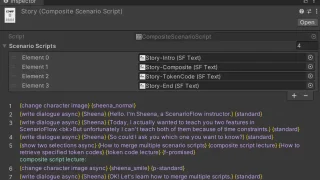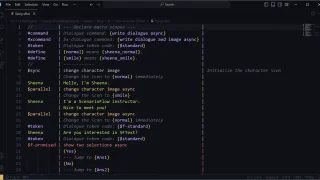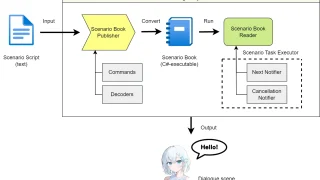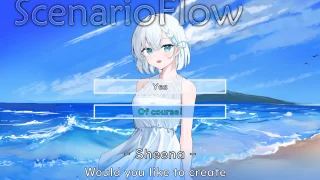 ScenarioFlow
ScenarioFlow 【ScenarioFlow】Other Features: Merging Multiple Scenario Scripts and Getting Token Codes
In this article, we are going to learn how to merge multiple scripts into a single scenario script and how to get the token code specified for an asynchronous command being called.







